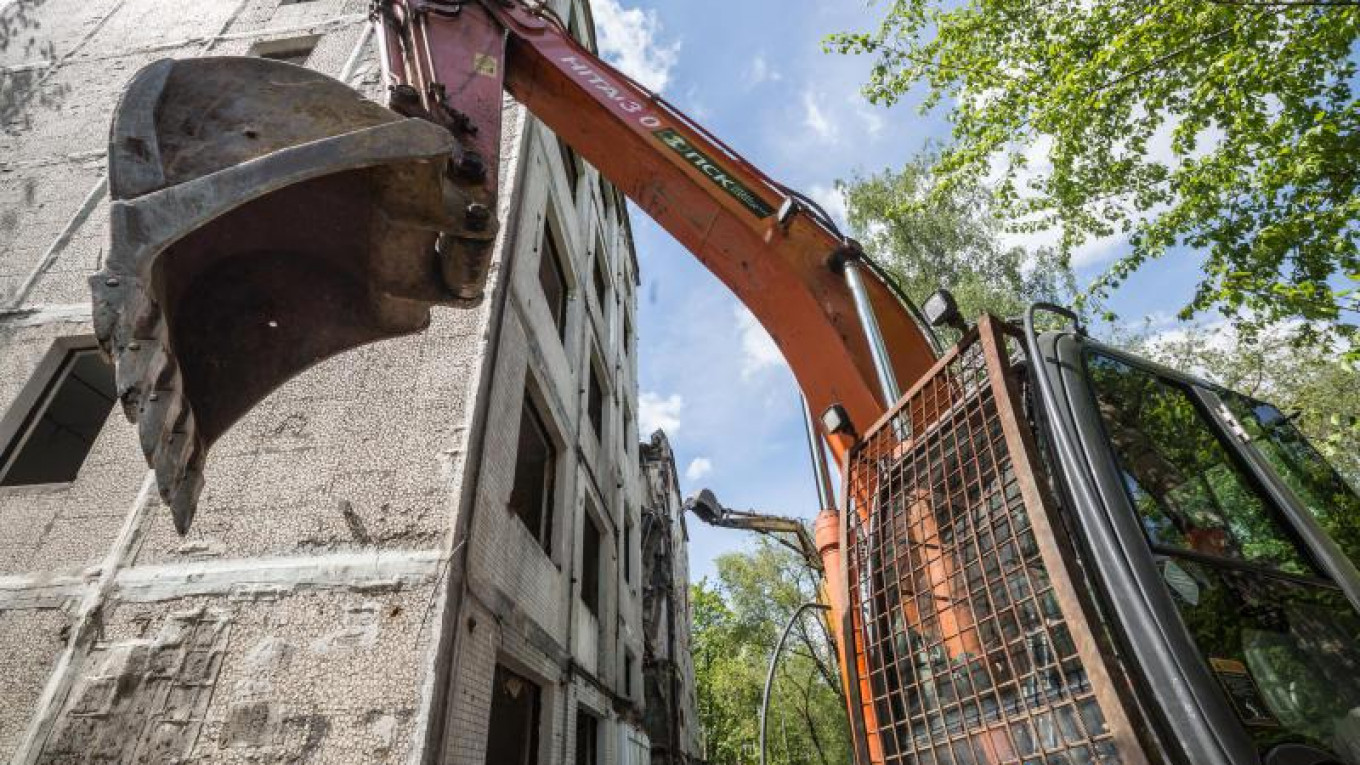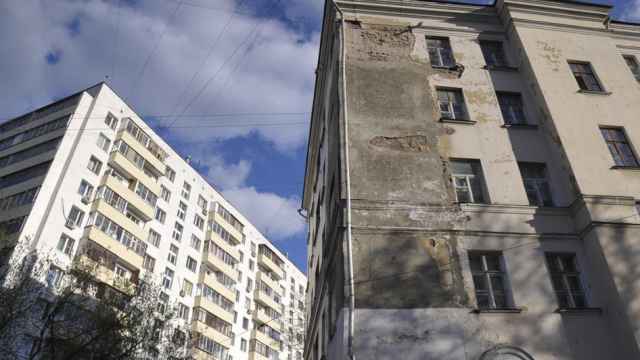A bill outlining Moscow authorities' controversial demolition program passed its third, and final, reading in the State Duma on Wednesday. The demolition plans have sparked the widespread protests in the city in recent months.
Just two lawmakers voted against the bill, one abstained, and 399 deputies voted for it, the Republic news website reported. Ahead of the vote several dozen Muscovites picketed the parliament building, demanding the bill be abolished. According to Sergei Mitrokhin, a politician from the Yabloko opposition party, eleven demonstrators were detained by the police, including Mitrokhin.
Moscow’s Mayor Sergei Sobyanin unexpectedly announced the program in February as an effort to upgrade rickety, five-story Khrushchevki apartment buildings. The pre-fab buildings, named after the 1950s Soviet leader, were only designed to last 50 years. Many had become dangerous to live in, Sobyanin said, and investing in renovations didn't make sense.
It soon became clear that the scale of the program was more ambitious. The bill passed by the Duma allows Moscow authorities to declare whole blocks of buildings “renovation zones,” where existing construction standards and regulations would not apply.
In the wake of mass protests, lawmakers introduced 126 amendments to the bill ahead of its second reading on June 9. These amendments addressed some Muscovites' concerns, including being allocated an apartment equal in market value, opting for monetary compensation instead, and contesting demolitions in court.
According to the amended bill, owners of apartments in buildings slated for demolition will be offered apartments equal in size or in market value in the same district. Receiving monetary compensation will also be an option. Owners will also be allowed to contest demolition in court.
A building is eligible for demolition if it was designed between 1957 and 1968 and is up to nine-stories tall.
A Message from The Moscow Times:
Dear readers,
We are facing unprecedented challenges. Russia's Prosecutor General's Office has designated The Moscow Times as an "undesirable" organization, criminalizing our work and putting our staff at risk of prosecution. This follows our earlier unjust labeling as a "foreign agent."
These actions are direct attempts to silence independent journalism in Russia. The authorities claim our work "discredits the decisions of the Russian leadership." We see things differently: we strive to provide accurate, unbiased reporting on Russia.
We, the journalists of The Moscow Times, refuse to be silenced. But to continue our work, we need your help.
Your support, no matter how small, makes a world of difference. If you can, please support us monthly starting from just $2. It's quick to set up, and every contribution makes a significant impact.
By supporting The Moscow Times, you're defending open, independent journalism in the face of repression. Thank you for standing with us.
Remind me later.






